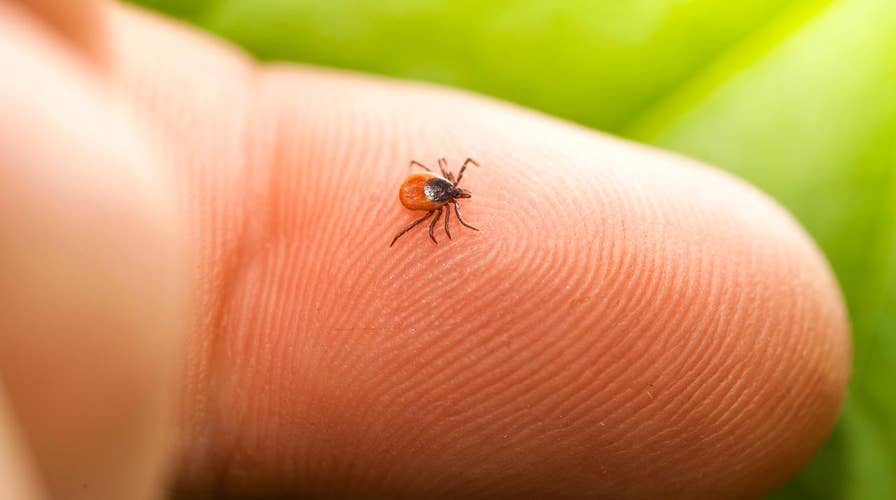What is Powassan disease?
A rare and life-threatening tick-borne virus is worrying doctors. What is Powassan disease and how can you keep yourself safe?
Two new cases of a dangerous and potentially fatal tick-borne illness have health officials in Maine on high alert as agencies across the nation brace for a particularly high-population tick season. The patients, who were not identified by the Centers for Disease Control and Prevention (CDC), contracted Powassan virus, which differs from Lyme disease as it can be transferred from tick to human in a matter of minutes.
“It’s a virus, whereas Lyme is a bacteria,” Dr. Kent Holtorf, a Lyme disease expert and medical director of Holtorf Medical Group, told Fox News. “If you catch Lyme early, antibiotics can eradicate it, but with a virus, you have much less options to do anything about it.”
'MIRACLE BABY' BORN WITHOUT A NOSE DIES AT AGE 2, FAMILY SAYS
Holtorf added that the symptoms of Powassan are more severe than Lyme, and can quickly reach a patient’s brain, leaving them susceptible to long-term neurological damage. The patients in Maine began presenting symptoms in late April and were hospitalized with encephalitis. They’ve since been discharged and are continuing to recover. Not all patients will have symptoms and will not be impacted by the infection, but those who are may experience fever, headache, vomiting, weakness, confusion, seizures and memory loss. In 10-15 percent of cases, the virus proves fatal.
Holtorf said people who are most likely to be symptomatic are those who are immunosuppressed or those who have previously contracted tick-borne illnesses like West Nile, Dengue and Lyme disease.
“In terms of the risk of you getting it, it’s very low,” Holtorf said, citing an average of seven cases reported annually by the CDC. “But there are going to be people that are going to get it, and though most won’t have symptoms, there are going to be people that are going to have severe brain damage from it — so it is concerning that you’re normal one day, and a few weeks later, you’re on a respirator and never the same again.”
According to the CDC, the two most recent cases brings Maine’s total count to nine since 2000. Holtorf said the overall recent spike in tick-borne illnesses likely has to do with the warmer temperatures during the two previous winters, and that the pests are developing mutated versions of some diseases.
“These things are mutating, and it’s becoming a scary world out there,” he said.
'LIKE BEING PLUNGED STRAIGHT INTO HELL': MOM OF TODDLER KILLED IN CRASH WARNS ON CAR SEAT SAFETY
While officials in the state are calling for hikers and others who choose to head outdoors to be vigilant, politicians and health agencies in other states are making similar pleas. In New York City, where more than 8,000 people were diagnosed with Lyme disease over the past 15 years, Sen. Charles Schumer (D-N.Y.) called for greater federal funding to fight against the disease.
Holtorf cited CDC recommendations to use tick repellent with DEET, and advised people who enjoy the outdoors to wear long pants, tuck jeans into pants or socks, and conduct frequent tick checks.
“With Lyme, you go back, take a shower and check yourself for ticks because you have time,” he said. “The problem with this is you don’t have much time.”

